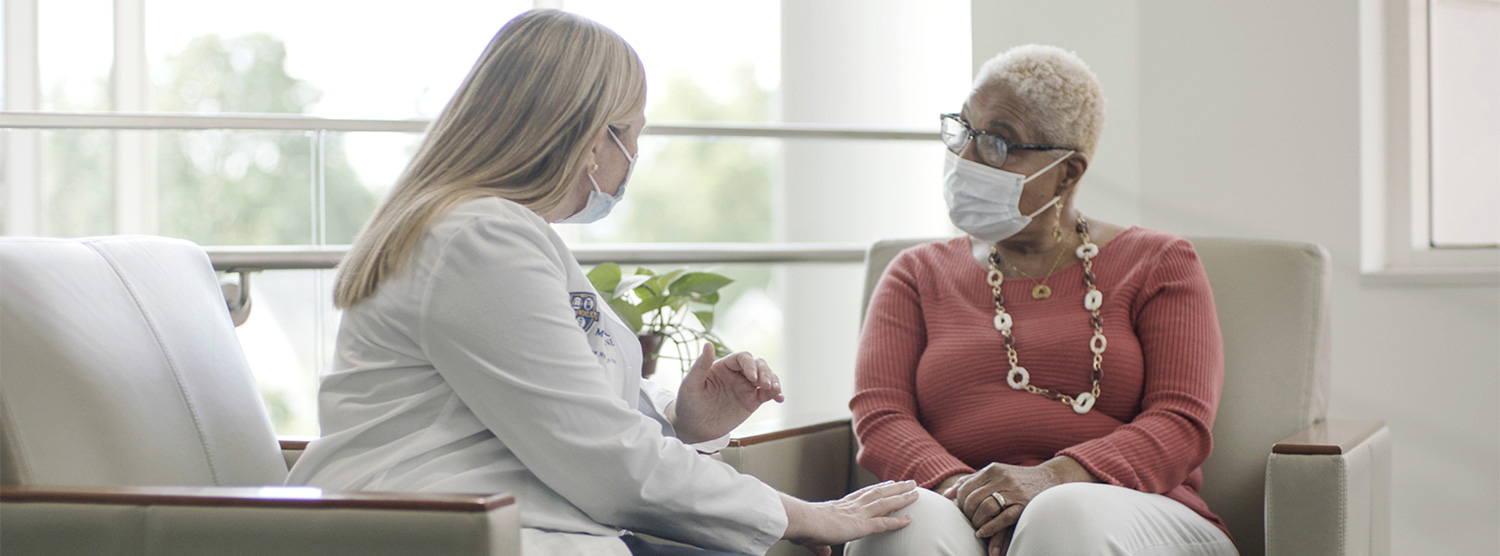Breast Health Program

To schedule an appointment, please call (585) 486-0557.
Fax: (585) 321-1724
The Breast Health program offers evaluation for any of the following concerns: family history of breast cancer, concerns with new imaging findings, newly discovered lumps, dense breasts, exposure to chest radiation, or any other worry. Our providers will obtain a thorough history and determine if you have an elevated breast cancer risk. If so, they will devise a plan that is tailored to your needs to reduce this risk. This may include personalized screening imaging plans, lifestyle changes (smoking cessation, weight loss, exercise, nutrition) and medications to reduce breast cancer risk.
Family History
Women with a first-degree relative (mother, sister, or daughter) that has breast cancer may have almost 2 times the risk of developing breast cancer in their lifetime, women with 2 first-degree relatives almost 3 times the risk. Having a father or brother with breast cancer also increases your risk.
Having certain inherited genes also increases your risk. If deemed appropriate, genetic testing will be offered in conjunction with our Hereditary Cancer Screening program.
Dense Breasts
Breast tissue is comprised of a mix of fibro-glandular tissue (the ducts and lobules that make milk), and fat tissue. Breast density is determined by comparing the amount of fibro-glandular tissue to fat tissue. This is one of the things your radiologist is looking for when evaluating your mammogram. Women with dense breasts have an elevated risk of developing breast cancer in their lifetime. It also makes it more difficult for a radiologist to see cancer on your mammogram. It is still important to have regular mammograms as most cancers can still be detected, but there may be other screening tests that should be added to the mammogram. Providers at the Breast Health program will discuss the risks and benefits of additional testing with you and create a plan specific to your breasts and your needs.
There are many other factors that can increase your risk, including those listed below. Additionally, we would welcome any patient with any breast complaint including, but not limited to breast pain or breast infections.
Specific Consideration of When a Consultation May Be Considered
Potentially elevated breast cancer risk:
- Family history of breast cancer
- Personal or family history of atypical cells
- Personal or family history of Carcinoma In Situ
- History of multiple breast biopsies
- Dense breast tissue
- Prior exposure to thoracic/chest wall radiation
- Calculated lifetime risk >20%
Benign Breast Diseases (not limited to):
- Breast infections/abscess
- Breast mass
- Nipple discharge
- Breast pain
- Abnormal breast imaging
Your Team